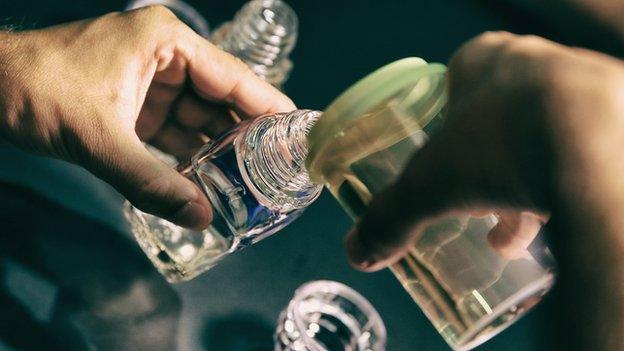Russian doping: Moscow press furious at allegations
- Published
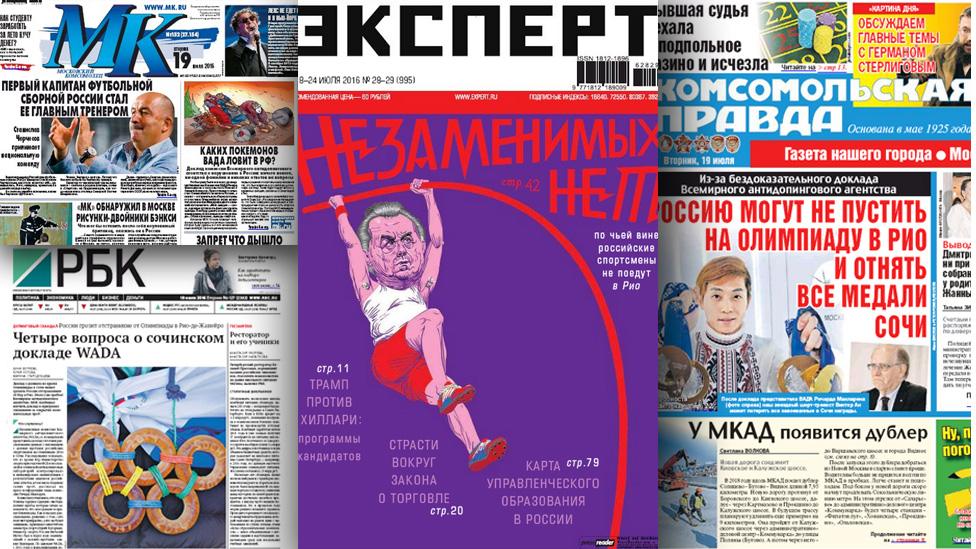
Newspapers in Russia did not hold back in their reaction to WADA report
Russia's press has reacted with anger at the international report which found evidence of state-backed sports doping over a four-year period.
Pro-government papers dismiss the validity of the World Anti-Doping Agency (Wada) report, which some said was influenced by foreign governments as part of a deliberate anti-Russia campaign.
However, amid the outrage, one former leading sports star says he thinks the Wada accusations were largely true.
'Quasi-war'
State-owned Rossiskaya Gazeta, external wades in with the theory that Wada is not politically neutral and is at the centre of an anti-Russia campaign.
"The Wada commission that was preparing the report under the supervision of its Canadian boss described itself as 'independent'," Nikolai Dolgopolov writes. "This is highly unlikely."
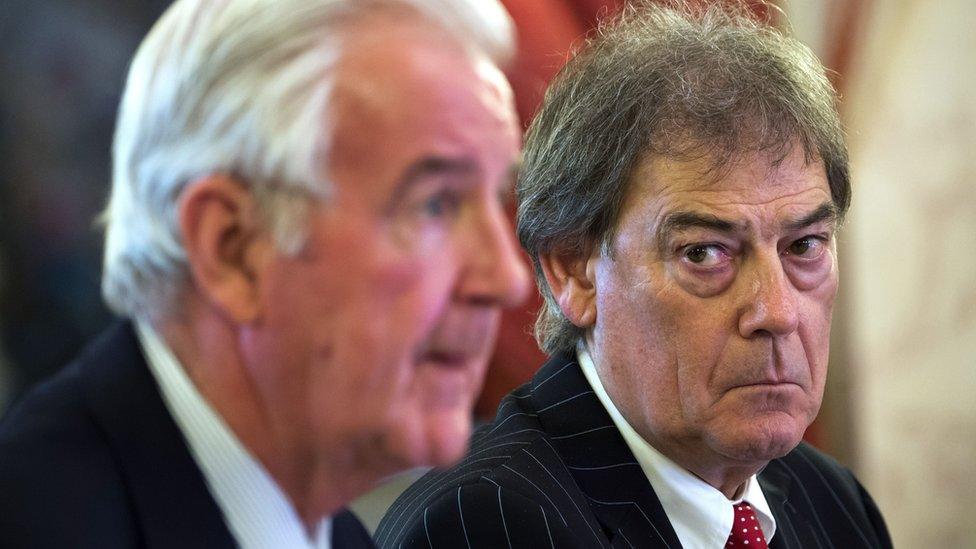
WADA's General manager David Howman (R) and chairman Craig Reedie (L)
"The work was carried out as if following somebody's orders. The Russians are to blame, full stop."
In the same report, academic Andrei Smolensky says simply: "It is not a report, it is a farce."
Pro-government Izvestia, external thinks Russian athletes were just pawns in a bigger game.
"Sport is too big a temptation not to draw political profit from it," it argues.
Writing in liberal business daily RBC, external, Andrei Kolesnikov of the Moscow Carnegie Centre believes that Russia was being deliberately targeted.
"It is important for us to take part in the Olympics, it is a quasi-war, a demonstration of soft and hard power."
Some, however, believe Russia does share at least some of the blame.
An editorial in Moscow business daily Vedomosti, external says Moscow's "yearning to win at all costs" has caused a "crisis of distrust".
"It will take Moscow years to prove that it is really fighting doping," it adds.
Popular news website Gazeta.ru, external agrees, adding that Russia's reaction has not helped matters.
"Do not shout 'you don't have proof', but prove our innocence," it urges officials.
'Weak spots'
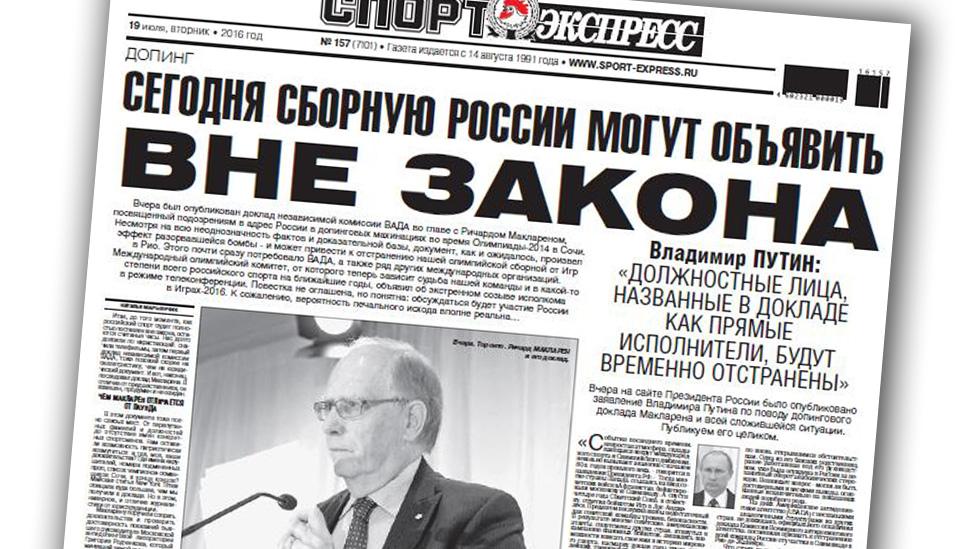
Russia's sporting newspapers lament what they think is the inevitable fate of not going to the Olympics.
"Mere hours remain before Russian sport is fully outlawed," Natalya Maryanchik writes in Sport Express, external.
However, she sees a chink of light: "This document has plenty of weak spots, from mixed up surnames to the absence of names of specific athletes."
In Sport Express, external, former world number one tennis player Yevgeni Kafelnikov provides a rare voice in support of the report's findings.
"I am disinclined to think that the allegations against Russian sport are the handiwork of our foes," he tells the paper.
"I don't think that Wada representatives would throw around such accusations willy-nilly. Evidently, such things really did take place."
'Scapegoat'
Pro-Kremlin Twitter users have been quick to defend their country's sporting honour, while opposition figures demanded that heads roll.
"Doping [exists] across the globe, in all countries," pro-Kremlin TV presenter and media executive Tina Kandelaki tweeted, external. "But for some reason Russia has been made a scapegoat. Why?"
Several apparently pro-Kremlin users have circulated a picture of former US Secretary of State Colin Powell holding a model of a vial of anthrax while trying to make the case for invading Iraq at the UN Security Council in 2003.
"Wada has presented 'convincing' and 'sound' evidence that Russian athletes use doping," user "subb_zer0" tweeted, external.
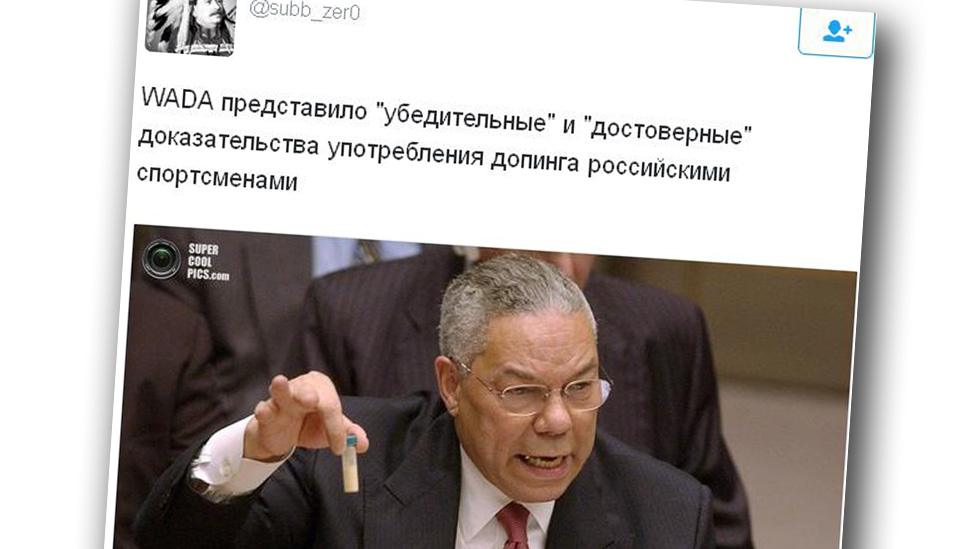
Opposition blogger Oleg Kozyrev puts the blame in part at the door of the FSB, Russia's security service.
"The FSB leadership, Russian sports leadership, deputy premier [and head of Russia's Olympic committee Alexander] Zhukov must resign, of course," he writes, external. "The Wada report is clear."
The editor-in-chief of the liberal radio station Ekho Moskvy, Alexei Venediktov, offered, external an alternative solution to the issue: "Just bar the FSB from the Olympics. That's all."
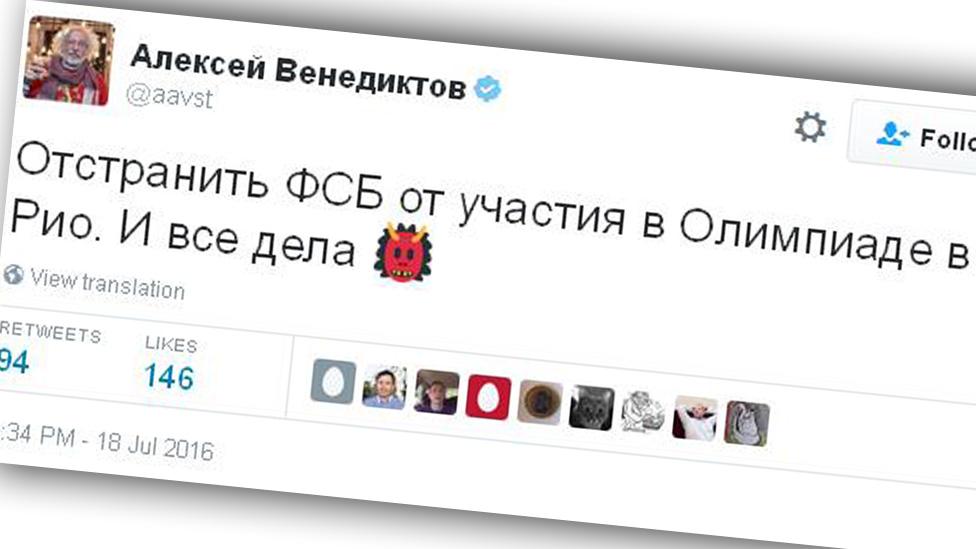
BBC Monitoring reports and analyses news from TV, radio, web and print media around the world. You can follow BBC Monitoring on Twitter, external and Facebook, external.
- Published17 June 2016
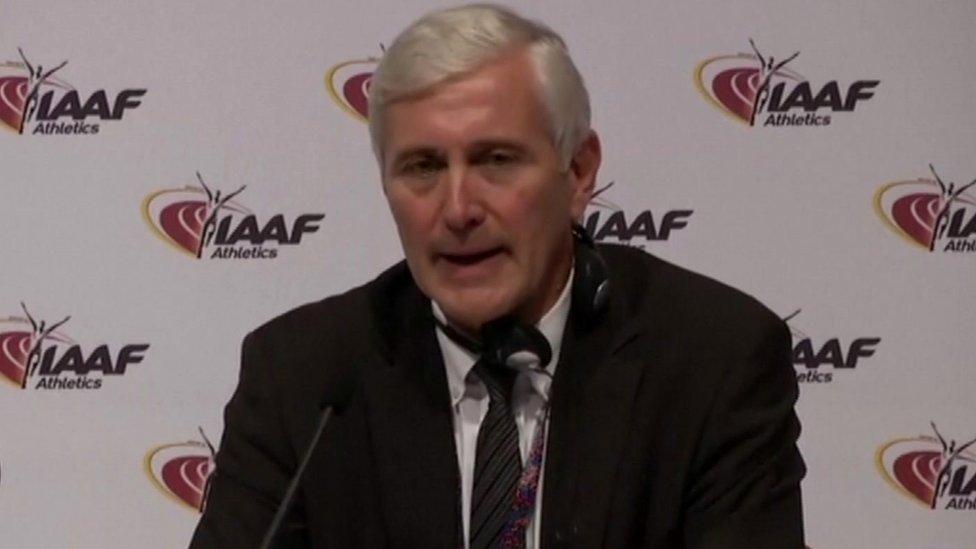
- Attribution
- Published12 November 2015
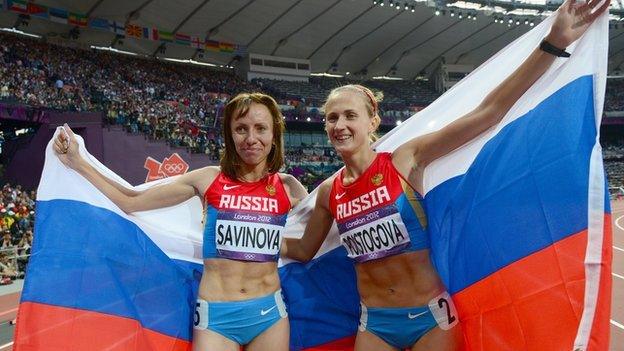
- Attribution
- Published17 June 2016
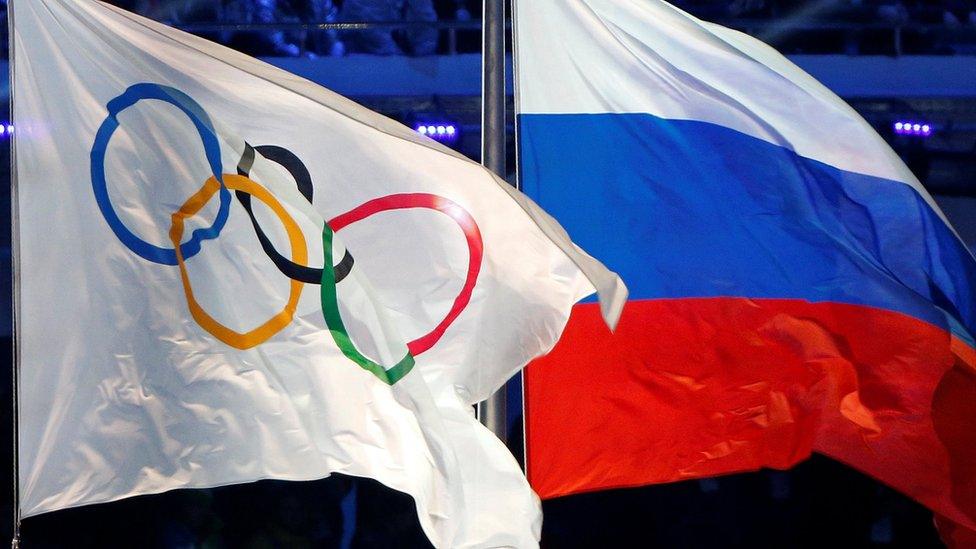
- Attribution
- Published15 May 2016
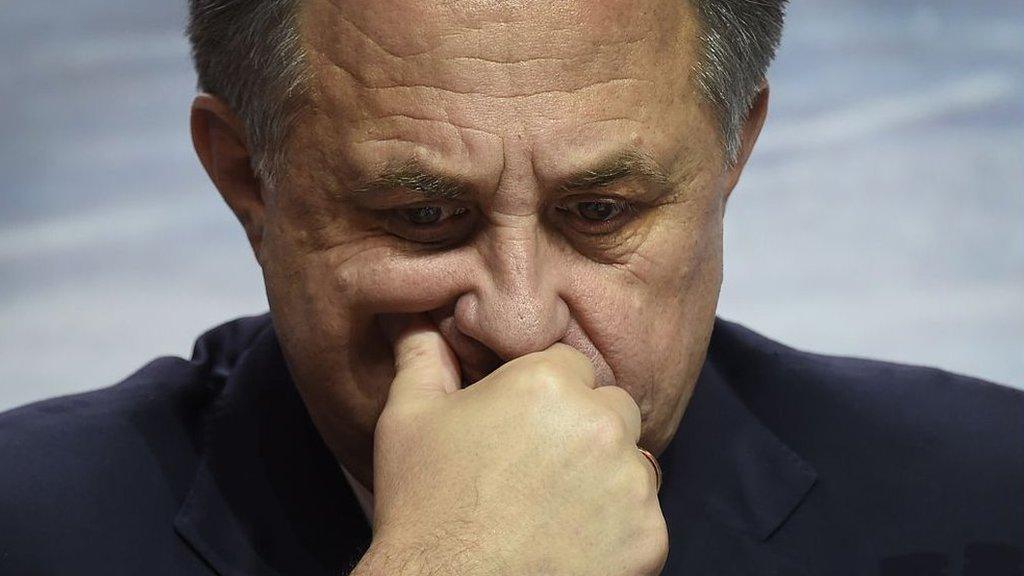
- Attribution
- Published4 December 2014
